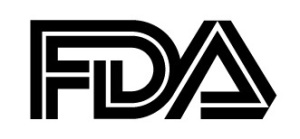I own several older antique automobiles. While I take my new car to the dealer I found an experienced independent mechanic to work on my older cars.
There are so many cars in the world and not every owner wants to go to the dealer for service. Some owners go to independent mechanics and others perform their own maintenance. Through it all, auto manufacturers continue to make record sales.
Recently, I read with interest an email that IAMERS president Diana Upton sent to inform her members that the FDA has asked for feedback from operators of diagnostic imaging equipment supplied by so called "third-party entity or entities."
The FDA Docket (see below) said in part "...various stakeholders have expressed concerns about the quality, safety, and continued effectiveness of medical devices... "
I presume that one or more OEMs suggested to the FDA that there are quality issues and so the FDA is investigating.
I know some refurbishers and they tell me that some OEMs do not share information and in fact make it hard to produce a refurbished product that saves providers money.
Some OEMs claim that patient safety is at risk and it is not a surprise that such a claim would motivate the FDA.
It is my understanding that some OEMs make it hard for independent or third-party entity or entities to gain access to calibration software and schematics. So, if there is a patient safety issue it seems to me that the policy of making it harder for independents to have access to software and tools is counter-intuitive.
In fact, it's possible that these policies contribute to the issue.
All this is 180 degrees different than the way car manufacturers handle this issue. Auto OEMs protect the public by making it possible for independent and do-it-yourself mechanics to have access to the tools, the schematics and software to keep a car in tip-top shape.
Is this because car manufactures sell more units and so they are less threatened by competition? Is it because they want to protect the secondary market and help their products hold value? It cannot be because cars are less complicated or less dangerous because — while I cannot remember the last medical equipment related death — we all know that people die from cars crashes every day.
And what would our presidential candidates say about all this? Which of them would say that our country has a history of free enterprise, of innovation and of protection of a open market and level playing field?
Which candidates would say that OEMs need to share the knowledge that they have precisely because of patient safety and because we have to do anything that we can to lower the cost of health care?
Which candidates would remind us of the Sherman Antitrust Act which made it illegal to unfairly monopolize a given market?
Conversely, which candidates would say that the independents should be outlawed so that the OEMs control the market?
Honestly, while I do not know how any of the candidates would react to this issue, I do know that we have succeed in making people live longer and there are more people alive today. It seems to me that rather than more regulation we need to ask the OEMs to do more to help lower the cost of health care not increase it.
A robust after market will help that.
Here is a link to the FDA docket.
Phil is a member of AHRA, HFMA, AAMI and the Cryogenic Society of America. He has contributed to a number of magazines and journals and has addressed trade groups.
Phil's proudest achievement is that he has been happily married to his wife Barbara since 1989, who helped him found DOTmed in 1998.

